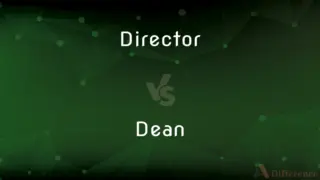Unemployed vs. Underemployed — What's the Difference?
Edited by Tayyaba Rehman — By Fiza Rafique — Published on October 5, 2023
Unemployed refers to individuals without a job seeking employment, while Underemployed denotes those working below their skill level or part-time when desiring full-time work.

Difference Between Unemployed and Underemployed
Table of Contents
ADVERTISEMENT
Key Differences
Unemployed is a term that directly describes individuals who currently do not have a job but are actively looking for one. These individuals might have lost their jobs, just entered the job market, or returned after a hiatus. In contrast, Underemployed individuals do have jobs. However, their employment doesn't align with their qualifications, skills, or experience, or they might work fewer hours than desired.
While both Unemployed and Underemployed conditions suggest labor market challenges, they reflect distinct scenarios. Being Unemployed means a complete absence of employment, typically accompanied by a search for work. Meanwhile, being Underemployed often implies dissatisfaction with one's current employment situation due to overqualification or insufficient hours.
A significant difference between the two is the economic impact. While both conditions aren't ideal, the Unemployed usually face immediate financial challenges due to a lack of income. On the other hand, the Underemployed might have some income but are likely not realizing their full earning potential.
Economists and policymakers closely monitor both Unemployed and Underemployed rates. While the Unemployed rate gives a direct indication of the job market's health, the Underemployed rate can hint at potential inefficiencies or mismatches in the labor market. Both play a role in shaping labor policies and economic strategies.
Comparison Chart
Definition
Lacks a job and is seeking employment
Has a job, but below skill level or desired hours
ADVERTISEMENT
Income
Typically no income
Some income, often below potential
Job Status
No job
Employed, but not optimally
Reasons
Job loss, entering/re-entering workforce
Mismatched skills, insufficient work hours
Economic Impact
Direct impact on unemployment rate
Reflects inefficiencies in labor market
Compare with Definitions
Unemployed
Has no employment but is actively job-hunting.
The Unemployed rate in the country has been rising.
Underemployed
Workers not realizing their full professional potential.
Despite his Master's degree, he feels Underemployed at the retail store.
Unemployed
Not engaged in gainful employment but seeking.
Despite his qualifications, he remained Unemployed.
Underemployed
Employment that doesn't utilize a person's skills or qualifications.
Working part-time when desiring full-time work can be considered Underemployed.
Unemployed
Lacks a job and is in search of one.
The downturn led to many skilled workers being Unemployed.
Underemployed
Employed below one's skill level or desired hours.
Many graduates find themselves Underemployed in unrelated fields.
Unemployed
Individuals without jobs actively seeking work.
After the factory closure, many became Unemployed.
Underemployed
Holding a job that doesn't match one's expertise or aspirations.
Earning less than one's qualifications warrant signifies being Underemployed.
Unemployed
People not currently in employment but looking.
She became Unemployed after moving to a new city.
Underemployed
Engaged in work that's inferior to one's potential or training.
She felt Underemployed in her clerical position after years of managerial experience.
Unemployed
Out of work, especially involuntarily; jobless.
Underemployed
Employed only part-time when one needs and desires full-time employment.
Unemployed
Not being used; idle.
Underemployed
Employed at a low-paying job that requires less skill or training than one possesses.
Unemployed
People who are involuntarily out of work considered as a group. Used with the.
Underemployed
Underemployed persons considered as a group. Used with the.
Unemployed
Having no job despite being able and willing to work.
The government announced a new initiative to help the unemployed.
Underemployed
Employed in a job that offers fewer work hours than desired.
I found myself underemployed when the company downgraded me from full-time to part-time.
Unemployed
Having no use, not doing work
Underemployed
Employed only part-time when one needs full-time employment or not making full use of your skills;
Migrants are likely to be poor and underemployed
Able people are kept underemployed
Unemployed
Not employed in manual or other labor; having no regular work.
Unemployed
Not invested or used; as, unemployed capital.
Unemployed
Actively seeking employment but unable to find a suitable job.
Unemployed
Not engaged in a gainful occupation;
Unemployed workers marched on the capital
Common Curiosities
Does being Underemployed mean you work part-time?
Not always; it can mean working part-time when desiring full-time or working below one's skill level.
How does being Underemployed impact the economy?
It can reflect inefficiencies in the labor market and lead to reduced earning potential.
What does being Unemployed signify?
Unemployed refers to individuals without a job who are actively seeking employment.
Can someone be considered Unemployed if they're not looking for a job?
Typically, to be considered Unemployed, one must be without a job and actively looking.
How does Underemployed differ from Unemployed?
Underemployed individuals have jobs but work below their skill level or desired hours.
Is the Unemployed rate a complete measure of job market health?
No, considering both Unemployed and Underemployed rates provides a more comprehensive view.
Can a highly educated individual be Underemployed?
Yes, if they work in a role that doesn't utilize their education or skills.
Share Your Discovery

Previous Comparison
Director vs. Dean
Next Comparison
Break Even Point vs. Margin Of SafetyAuthor Spotlight
Written by
Fiza RafiqueFiza Rafique is a skilled content writer at AskDifference.com, where she meticulously refines and enhances written pieces. Drawing from her vast editorial expertise, Fiza ensures clarity, accuracy, and precision in every article. Passionate about language, she continually seeks to elevate the quality of content for readers worldwide.
Edited by
Tayyaba RehmanTayyaba Rehman is a distinguished writer, currently serving as a primary contributor to askdifference.com. As a researcher in semantics and etymology, Tayyaba's passion for the complexity of languages and their distinctions has found a perfect home on the platform. Tayyaba delves into the intricacies of language, distinguishing between commonly confused words and phrases, thereby providing clarity for readers worldwide.












































